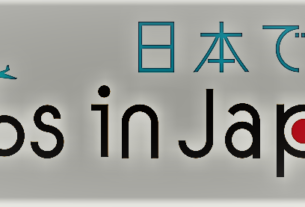LATEST JOBS IN JAPAN 2022
There’s a good chance that most Japanese workers will have multiple jobs by the year 2022. In this article, we will look at why this is the case, why remote working is becoming more common in Japan, and why Japanese companies are hiring for multiple roles. Also, we’ll discuss why Japanese management is based on group harmony. And finally, we’ll take a look at what the future holds for Japanese workers.

Japanese workers will have more than one job in 2022
While it used to be illegal for a worker to work for more than one company, the Japanese government has relaxed the rules in recent years and more companies are accepting part-time workers. There are currently 7.44 million Japanese workers who have more than one job, accounting for about 11 percent of the overall workforce. However, the number of part-time workers is increasing, indicating that more people are turning to side jobs.
It is estimated that as many as a third of Japanese workers will have more than one job in the next decade. This rise in flexible working practices has made it possible for more people to work from home than ever before. One study by the Ministry of Health, Labor, and Welfare shows that workers will have more than one job by 2022, compared to the five years prior. In Tokyo alone, the cost of living has declined by six percent since 1997, resulting in a more flexible lifestyle for most Japanese.
Remote work is becoming more popular in Japan
There are several reasons why more people in Japan are opting for remote work. The first is that presenteeism in Japan has long been a problem. Many people fear they will not get promoted if they don’t work long hours. Furthermore, Japanese people value mentorship, which is not as effective in a remote environment. Luckily, technology has helped overcome this problem. Many Japanese companies are turning to remote work.
According to a recent survey, teleworkers are more productive. In October 2020, for example, 36% of employees who were working from home said they would be comfortable returning to their office if they were required to. The remaining 13% would be somewhat comfortable in their workplace, and the other two thirds said they would not feel comfortable returning to their former workplace. This makes sense, as more employees are opting for remote work.
Japanese management style is based on group harmony
Japanese management is rooted in group harmony. This philosophy extends to the business world as well. While American management styles are based on task and relationship leadership, Japanese management focuses on creating harmony within a group. In short, the Japanese management style promotes group harmony through participation. In many ways, this makes the Japanese approach to managing a business more flexible and less rigid. But it does have its drawbacks.

Japanese companies place emphasis on building consensus among all employees. Instead of a manager who appoints to make decisions, people are given ownership of those decisions. This approach allows everyone to contribute their own ideas, even if they are not in the same category. In Japanese management, the manager often acts as a facilitator, building consensus rather than the decision maker. The word “matomeru” translates to “to bring together.”
Japanese companies are hiring for a variety of roles
Japan’s workforce is aging and shrinking. The country’s population peaked in 2008 at 128 million people, and is projected to decline to just 90 million by 2060. In that time, forty percent of the population will be 65 or older. To counter this, almost every major Japanese company is engaged in an annual mass-hiring ritual, which dates back to the post-war economic miracle, when companies hired new graduates in large numbers, trained them for months, and eventually gave them permanent jobs.

Job seekers can find various roles in Japan by looking for job listings and networking with Japanese professionals. The Japanese prefer flexible and personable employees, while Western workers usually try to prove themselves with their abilities. Ultimately, however, Japanese employers place greater value on responsibility, professionalism, and work ethic. For this reason, it is important to network effectively. Recruiters also look for a candidate with a strong work ethic and an aptitude for teaching.
Mercari is hiring for a Web/Mobile Engineer
If you’re looking for a job in the tech industry and are interested in web development, Mercari is currently hiring a Web/Mobile Engineer. Mercari is a Japanese tech unicorn that has created an online marketplace for sellers and buyers. Its app is the number one download in Japan, and it has expanded beyond Japan’s borders in less than a year. It has just launched in the UK, and its product team is planning global expansion.
-
Job Requirement
-
Casher JAP View & Apply Drivers JAP View & Apply Cleaners JAP View & Apply Farm Workers JAP View & Apply Factory Workers JAP View & Apply General Labor JAP View & Apply Technician JAP View & Apply House Keeping JAP View & Apply Cook JAP View & Apply Security Guard JAP View & Apply How to Apply for Japan jobs?
Please apply for Japan Jobs from the above list. Click on the above Job title related to your designation. You will redirect to the official job site - FOR FIND A MORE JOBS CLICK THE LINK BELOW
-
MORE JOBS





